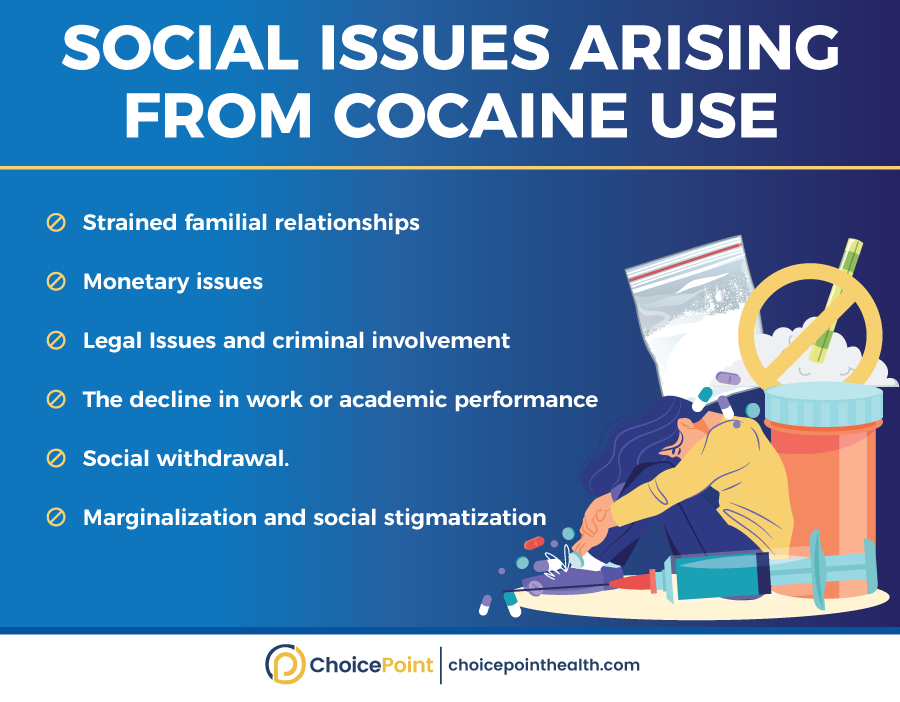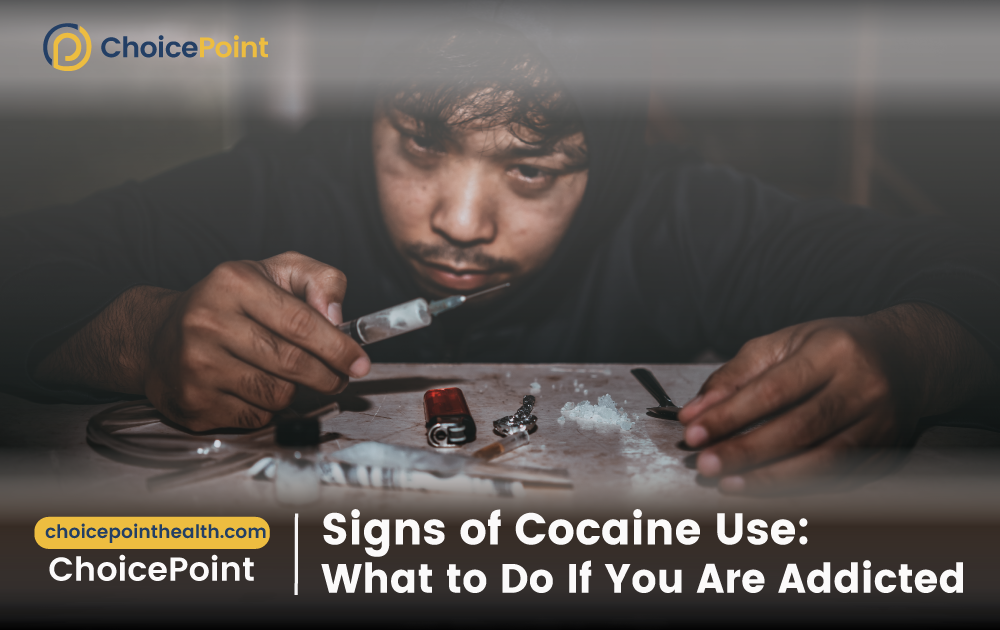Cocaine is one of the prime culprits for death among teens and adolescents, which is a cause of concern for the medical community. After the pandemic, the use of drugs like stimulants (cocaine, meth) and opioids (heroin, fentanyl, etc.) increased by 16%, and the crisis continues. To protect your loved ones, looking for signs of cocaine use can be helpful. Continue reading this article to learn about physical and behavioral cocaine addiction signs.
Table of Contents
Explicit Signs of Cocaine Use
The signs of cocaine use can vary from person to person. Here are some of the common ways that cocaine use manifests itself physically:
a. Physical Signs of Cocaine Use
Here are some of the few signs of cocaine use:
b. Enlarged Pupils
One of the most explicit signs of cocaine is dilated pupils. Dilated pupils are one of the signs of what is colloquially known as “cocaine eyes.” This is because cocaine use has a particular effect on the eyes.
c. Restlessness
Cocaine, a stimulant, can result in symptoms of restlessness, i.e., fidgety and unable to sit still.
d. Excessive Sniffing or Snorting Behavior
Since cocaine is widely snorted, repeated sniffing or powdery residue around the nose could indicate cocaine usage. Snorting cocaine damages nasal and palatal tissues
e. Weight Loss and Decreased Appetite
Cocaine can reduce appetite, resulting in significant weight loss over time. This happens due to the decline in fat regulation of the body that cocaine renders. Therefore, it is highly likely that your loved one must be using cocaine if they are losing weight and other signs are also showing up.

Will Cocaine Cause A Miscarriage?
f. Track Marks or Injection Sites
If signs of injection administration start appearing on a person’s arms or legs, such as needle marks or bruises. It may also be a sign of cocaine use, indicating using other harmful substances, such as opioids. Therefore, whatever the case is, you should try to get them to seek help.
g. Troubled Sleep Patterns
Another sign and cause of concern for individuals is that they may develop irregular sleep patterns. It can sometimes lead to insomnia or affect a person’s health generally.
Do you see these signs in your loved one? Call us at 844.445.2563 our DEA-certified doctors or fill out this form to undergo cocaine addiction treatment in our rehab in New Jersey.
Behavioral Signs of Cocaine Use
Other than physical signs, you should also look for behavioral signs of cocaine use among your loved ones.
Paranoia
Cocaine usage may exacerbate paranoia, cause intense anxiety, or cause one to become more distrustful of others’ motives. It is a significant sign of cocaine intake because the CNS is not working properly.
Being Irritable and Less Social
Initially, cocaine can provide euphoria, but as soon as the intense feelings wear off, they are replaced by stress and irritability. The result can make a person more withdrawn from their social group. A person using cocaine can also be involved in a new friend’s circle rather than their previous one just because the drug might be readily available in the new social group.
If you observe these signs in yourself or your loved one, there is a high risk that you are probably going through cocaine addiction. Addiction specialists recommend that professional help can save your addiction from getting worse. Call us at 844.445.2563 or Fill out this form.

Reasons Cocaine Does Not Benefit Socialization
How to Overcome Cocaine Addiction
In case your concerns about cocaine use and cocaine addiction prove correct, the best thing to do is to undergo addiction treatment. There is no shortcut for getting rid of overcoming cocaine addiction. However, with the right interventions, recovery is possible.
1. Talk to Your Loved One
Talking to someone means accepting that you have a problem. Once you acknowledge that you are struggling with cocaine addiction, it will feel easier to seek professional help.
2. Opting for an Addiction Specialist
Conversing with an addiction specialist is the second and most important step to overcoming addiction. It is important to remember that giving up on cocaine is dangerous due to the withdrawal you experience. So, to safely overcome cocaine addiction, you should undergo professional detox.
You can visit our rehab center in Fairlawn, NJ, for a medical detox in New Jersey. And for statewide in Montana, we are also available virtually. Contact us at 844.445.2563 or fill out this form now.
3. Proper Aftercare
You need to know that addiction recovery is a continuous process. Taking treatment for a short period does not mean you are completely over cocaine. Even after your treatment ends, you must take good care of yourself. Aftercare involves:
- Some degree of consultation with addiction counselors or therapists
- Joining support groups or other outpatient treatments
- Refraining from engaging with friends that are actively involved in drug abuse
- Engaging in hobbies that help you distract from cravings
You can opt for our therapies as an aftercare program to sustain recovery. You may contact us at 844.445.2563 or fill out this form. At ChoicePoint, we take follow-ups. Don’t hesitate to reach out.
The Gist of Signs of Cocaine Use
To protect the well-being of those close to us, it is essential to recognize the signs and symptoms of cocaine use. Physical symptoms, including dilated pupils, agitation, sniffing, weight loss, track marks, and sleep disruptions, should be taken care of. Significant warning signs may include behavioral changes such as social isolation, impatience, and paranoia. The most crucial step in eradicating the risks of cocaine use is to seek expert help.
Medical Disclaimer:
ChoicePoint aims to improve the quality of life for people struggling with substance use disorder and mental health issues. Our team of licensed medical professionals research, edit and review the content before publishing. However, this information is not intended to be a substitute for professional medical advice, diagnosis, or treatment. For medical advice please consult your physicians or ChoicePoint's qualified staff.









Review Signs of Cocaine Use: What to Do If You Are Addicted.